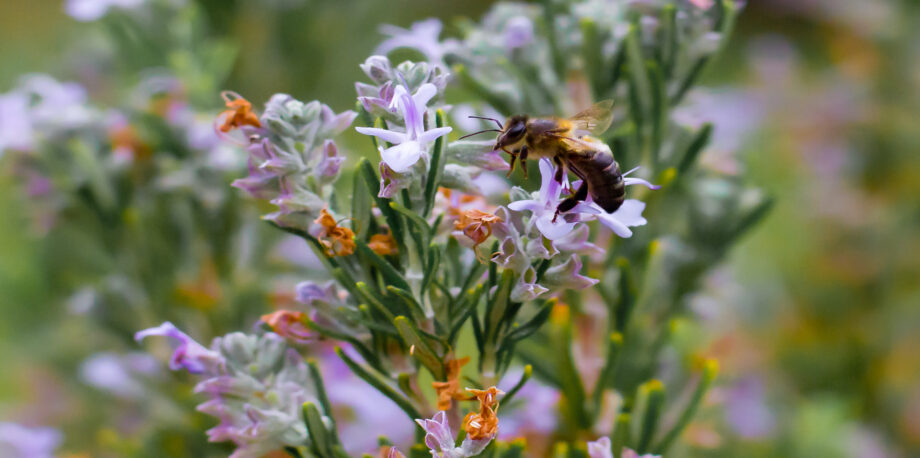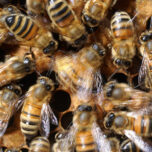June 14, 2021 — Spring typically marks that time when insect pollinators begin the work that helps produce so many of the fruits and vegetables we love. In fact, researchers estimate that pollination accounts for about 9.5% of global agricultural production’s economic value.
However, global warming potentially threatens to cause mismatches, now and in the future, between these pollinating insects and the flowering plants that they help fertilize, according to a study published last summer by researchers from the University of Mons in Belgium. It’s a risk that merits more research: When it comes to plants, pollinators and the climate crisis, there’s still a lot we don’t know, the researchers write, and “to address this current knowledge gap, we need ambitious strategies for monitoring plants and their pollinators.”
Pollinating insects and flowering plants have a mutually beneficial relationship: The plant provides food to the insects, which spread pollen from one flower to another — helping the plant reproduce. But when warming temperatures alter one side of this relationship, there’s a risk that the whole process might be thrown off, potentially harming the insects, the plants and the broader ecological community.
According to the report, there is “growing empirical evidence” that bad timing can cause what scientists call phenological mismatches between plants and their pollinators. Global warming can influence living things’ life cycles, annual patterns and other activities, spurring situations where cycles that were once in sync no longer line up. If a plant flowers earlier than usual, for example, it might miss the window of time when its main pollinators are at work, leading to a potential decrease in seed production.
Observers most often note cases of bad plant/pollinator timing in the spring, so the researchers remark that spring-flowering plant communities could be more severely impacted. “Mismatches between the emergence of bee species and the blooming of their main resources have been specifically recorded,” the researchers write.
The researchers also point to another important, albeit more speculative, climate-related driver of plant-pollinator discordance: geography. Models simulating the future suggest that such geographical mismatches could happen if global warming shifts these species ranges and different species fail to match up and make pollination happen.
Plants and pollinators must be in the same area to help each other out, so if a changing climate pushes either party out of places they’ve long lived, it could sever that mutualistic relationship. Reductions in that spatial overlap could possibly leave some plants and pollinators without their essential counterparts. While changes relating to timing and life cycles are more established in scientific research, the study emphasizes that geographic mismatches could also be potential risks in a warming climate.
“Mismatches in the interactions between plants and pollinators will lead to the emergence of new biological networks and communities,” the researchers conclude. Some communities may lose interactions due to the changes in climate, but some may also gain new interactions. Better understanding of these dynamics is vital in a warming world because, the researchers write, “evidence for phenological mismatches as a result of microevolutionary responses has already been observed, thus a critical challenge is now to assess if the pace of adaptive evolutionary changes will be fast enough [to] track climate warming and prevent species extinctions.”
Author note: This article is dedicated to my grandfather, Stuart Bernstein, who died on January 4th after a long battle with heart disease. My Papa Stu inspired me to pursue a career in the environment and I know how much he would have loved to read this piece.
Main image, “Pollination,” by hernanpba is licensed under CC BY-SA 2.0
Related Posts
Ensia shares solutions-focused stories free of charge through our online magazine and partner media. That means audiences around the world have ready access to stories that can — and do — help them shape a better future. If you value our work, please show your support today.
Yes, I'll support Ensia!



